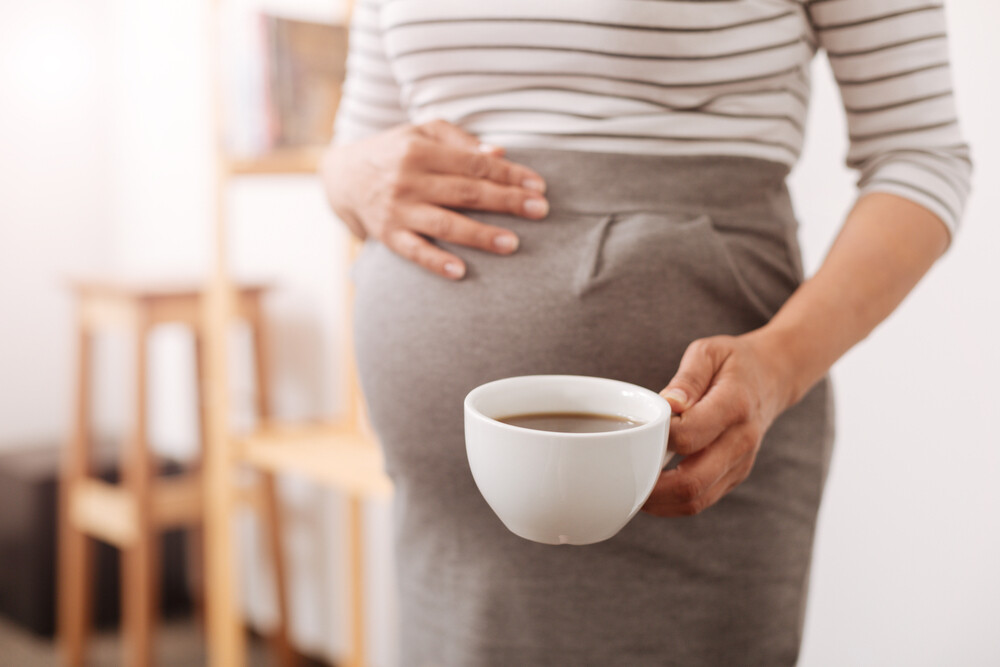Should you avoid coffee altogether during pregnancy or should pregnant women be allowed to treat themselves to a cup every now and then? These are the questions we will answer here.
For many of us, coffee is automatically part of the morning wake-up process and we also have a cup of coffee in between to keep the tired mind on its feet. But what about pregnancy? Are pregnant women allowed to drink coffee and if so, how much?
How coffee affects the unborn child during pregnancy
Coffee contains caffeine, which has an invigorating effect, which is expressed both in the heart rate and in the increased metabolism. If pregnant women drink coffee, the caffeine does not stop at the placenta. On the contrary: it passes through the placenta and enters the baby’s bloodstream. The stimulating effect is therefore not only felt by the pregnant woman, but also by the unborn child.
Can one drink coffee during pregnancy?
- Coffee and other caffeinated drinks do not have to be avoided during pregnancy – but the expectant mother should reduce their consumption to a minimum.
- With reference to the European Food Safety Authority, the German Nutrition Society recommends that the caffeine dose in pregnant women should not exceed 200 mg per day.
- This includes not only coffee but also other caffeinated beverages such as black or green tea, cola or cocoa and chocolate. A cup of filter coffee, for example, already has about 90 mg of caffeine, while a cup of black tea has about 45 mg and a glass of cola about 25 mg of caffeine. Pregnant women should therefore be careful and always bear in mind that the consumption of caffeine can accumulate quickly. Pregnant women should not drink energy drinks at all!
What risks does heavy caffeine consumption pose to the unborn child?
- If the consumption of coffee or caffeine in general is reduced to a minimum, this has no negative effects on the baby.
- The situation is different if the baby consumes a lot of caffeine during pregnancy: It can have a negative effect on the baby’s birth weight, as a scientific study from Norway found out. It was found that if the consumption of caffeine is increased during pregnancy, the children are born with a lighter birth weight. Coffee can therefore influence the growth of the baby.
- There are also studies that are even more critical of coffee consumption: One US study, for example, says that the risk of miscarriage is increased by heavy and regular coffee consumption during pregnancy, as reported by the German Ärzteblatt in 2008.
Coffee (caffeine) in pregnancy: Conclusion
You don’t have to give up coffee completely during pregnancy, but consumption should be limited to two cups per day.

